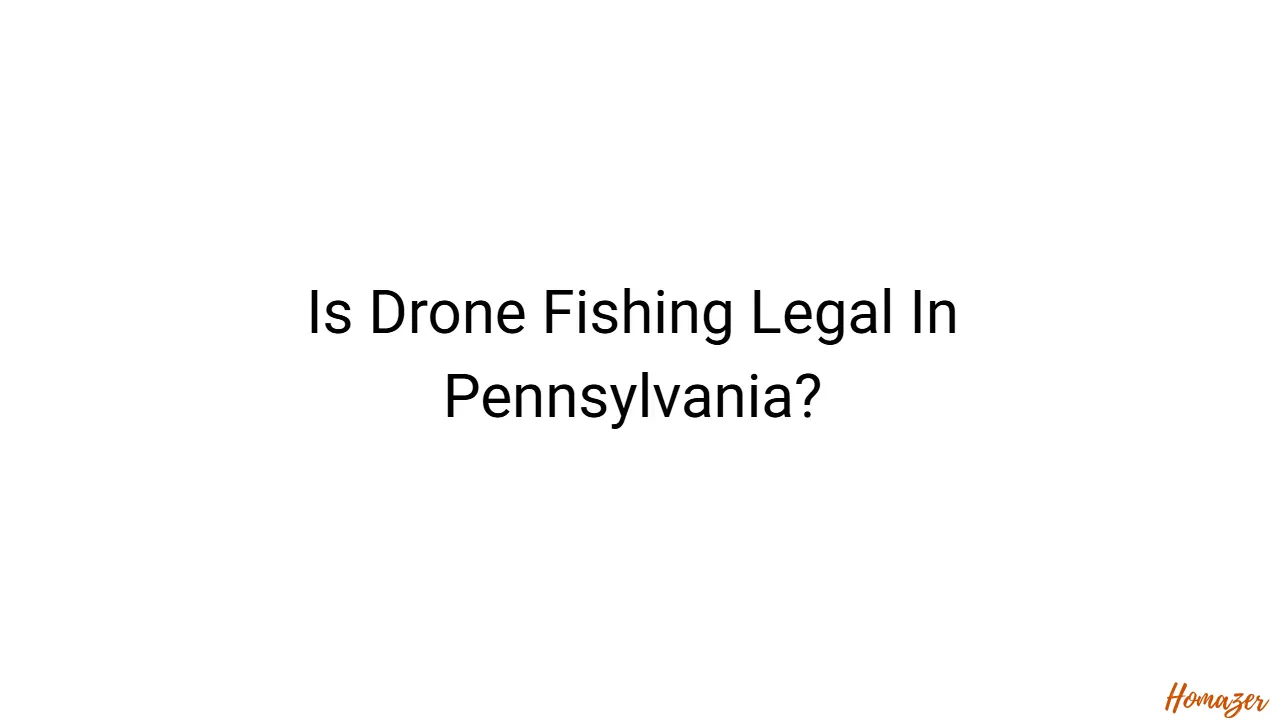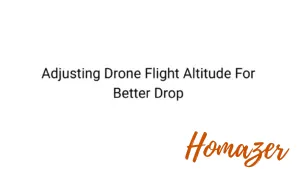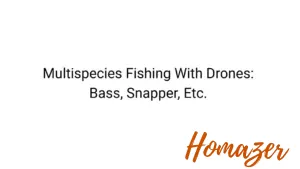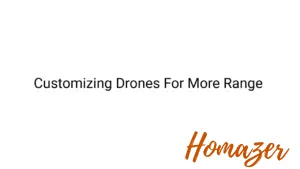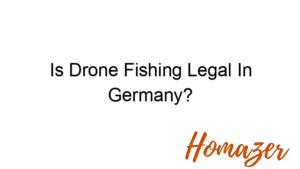Imagine you’re casting a line, hoping for a bite, but the fish just aren’t cooperating. Wouldn’t it be great to reach spots you normally couldn’t? That’s where something like drone fishing comes into play. You might be curious whether you can legally use a drone to improve your chances in Pennsylvania. This exploration examines the legality, regulations, and practical aspects of this increasingly popular pastime. You’ll gain a clear picture of what’s allowed and what’s not, potentially saving you from trouble. By the time you’re done reading, you’ll have a solid grasp of the rules and regulations, ensuring your fishing adventures are both successful and compliant. This information aims to improve your time on page and reduce your bounce rate by keeping you engaged and informed.
Pennsylvania’s Fishing Laws: A Baseline
Before considering drones, it’s essential to understand the general fishing laws in Pennsylvania. These laws are the foundation upon which all other regulations, including those concerning drone fishing, are built. They cover everything from licensing requirements and permitted fishing methods to species-specific restrictions and size limits. Knowing these rules ensures you’re already compliant with the fundamental aspects of fishing in the state. Ignoring these foundational principles could result in penalties, regardless of the technology you use.
Pennsylvania’s fishing regulations are designed to protect aquatic resources and ensure sustainable fishing practices. The Pennsylvania Fish and Boat Commission (PFBC) is the governing body responsible for setting and enforcing these rules. The regulations are updated frequently, so it’s vital to stay informed. They are typically available online, in printed booklets, and at various locations where fishing licenses are sold. Keeping up-to-date helps you avoid inadvertent violations and promotes responsible angling. Following the current guidelines helps maintain the health of Pennsylvania’s waterways for future generations.
Licensing and Permits: The Basics
Fishing in Pennsylvania requires a valid fishing license. This rule applies to both residents and non-residents who are 16 years of age or older. The license allows you to fish in any waters open to public fishing in the state. Additional permits are sometimes needed. For instance, if you want to fish in certain trout waters, you might need a trout/salmon permit. Understanding the specific requirements for your fishing activities is essential to ensure you are compliant.
- Fishing License: This is the most basic requirement, covering general fishing privileges. It’s obtained by registering with the PFBC and paying a fee. This license proves you’re allowed to fish.
- Trout/Salmon Permit: Required if you intend to fish in specially designated trout waters or stock-enhanced waterways. This permit supports programs aimed at stocking and managing these specific fisheries.
- Lake Erie Permit: Those fishing in Lake Erie might need a Lake Erie permit in addition to their regular fishing license. This generates funding specifically for projects on Lake Erie.
- Senior Licenses: Pennsylvania offers reduced-fee fishing licenses for senior citizens. Check the PFBC website for eligibility criteria.
Fishing licenses can typically be bought online through the PFBC website, at county treasurer’s offices, or at various authorized license issuing agents such as sporting goods stores. Purchasing a license is a straightforward process, but remember to have your identification and any other required documentation available. Once you have a license, carry it with you while fishing. Failure to produce a valid license if requested by a PFBC officer can result in penalties, so always keep it handy.
Permitted Fishing Methods: The Traditional Approach
Pennsylvania law clearly defines the methods you can use for fishing. The standard approach includes using a rod and line with hooks, lures, and bait. Other permitted methods include the use of bows and arrows, spearfishing (under specific conditions), and the use of certain types of nets for specific purposes. However, drone fishing introduces a modern method that is not explicitly covered by these traditional approaches. This lack of clear guidance complicates the legality of this activity.
- Rod and Reel: This is the most commonly used and accepted fishing method, allowing anglers to cast, retrieve, and fight fish. This is the cornerstone of Pennsylvania’s fishing regulations.
- Spearfishing: Allowed under specific circumstances and in specific areas. Regulations for spearfishing are usually designed to prevent overfishing and to protect certain species.
- Bow and Arrow: Bowfishing is permitted for certain species and in specific locations, offering an alternative angling experience. Regulations limit species and times for bowfishing.
- Nets (with restrictions): Various nets are permitted for specific uses, such as for the collection of bait or for fish removal under permits. Nets are strictly controlled to prevent accidental catches of non-target species.
Regulations often specify the types of gear allowed, the number of hooks and lines you can use, and how they should be rigged. Some areas might restrict the use of certain types of bait or lures. These restrictions help prevent overfishing, protect vulnerable species, and ensure fair competition among anglers. Familiarizing yourself with these regulations is essential before you head out to fish. The PFBC website and printed materials provide comprehensive details on these permitted methods.
Drone Fishing in Pennsylvania: The Legal Question
The core question of whether is drone fishing legal in Pennsylvania? isn’t simple to answer. The primary factor is that Pennsylvania has not yet issued specific regulations directly addressing drone fishing. This absence of clear guidance leaves the activity in a grey area. The general laws regarding fishing and drone use are likely to be used to interpret whether drone fishing is permissible.
While there are no specific laws that permit or prohibit drone fishing, there are general laws that indirectly impact it. These include restrictions on fishing methods, restrictions on drone operation (particularly those set by the Federal Aviation Administration), and privacy laws. These rules could apply in ways that make drone fishing problematic or illegal. Consequently, the interpretation of existing laws and the potential for enforcement can be uncertain.
Interpreting Existing Regulations: What Applies?
Since no specific laws exist, drone fishing in Pennsylvania is assessed based on existing regulations. Here’s a breakdown:
- Fishing Regulations: The PFBC’s rules on permitted fishing methods. Since drone fishing doesn’t fall into the common fishing methods, interpretation is required.
- Drone Operation (FAA): Federal regulations govern how drones are operated. This includes rules on altitude, airspace, and where you can fly. Ignoring these FAA regulations can lead to serious consequences.
- Wildlife Protection: Laws designed to protect wildlife from harassment or disturbance. Flying drones near nesting areas, for example, could be problematic.
- Privacy Laws: Pennsylvania laws relating to privacy. Flying drones near private property and recording without permission could violate these laws.
The PFBC might interpret the use of drones as a violation of the fishing methods regulations. If the drone is used to cast or retrieve the line, it might not be considered a standard fishing technique. Furthermore, the FAA regulates drone use, including where and when you can fly. Violating these rules can lead to fines from the FAA. Considering the location, you also have to be mindful of wildlife protection and privacy. Flying a drone near a wildlife area could violate wildlife protection laws. Collecting video or images of people or property could violate privacy laws.
Potential Legal Issues: Risks to Consider
Several legal issues could arise when considering drone fishing. These issues include the potential for violating fishing regulations, interference with wildlife, and violations of federal aviation rules. It is crucial to understand the risks involved before you engage in the activity.
- Unclear Permitted Methods: Because the drone itself isn’t a traditional fishing method, there could be enforcement challenges. PFBC officers might view the practice as an illegal method.
- FAA Violations: Failing to comply with FAA regulations on drone use can lead to serious penalties. This includes flying in restricted airspace or at inappropriate altitudes.
- Wildlife Disturbance: Drones can disturb wildlife, particularly nesting birds or other sensitive species. If a drone disrupts wildlife, it might violate wildlife protection laws.
- Privacy Concerns: Recording video or taking photographs with a drone over private property could violate privacy laws. Pennsylvania has laws concerning the use of visual surveillance.
- Damage or Loss of Gear: If your drone malfunctions and drops your line or the line gets snagged and the drone is lost, you’re responsible for the loss. There is no insurance to cover drone fishing.
The penalties for violating fishing regulations can include fines and revocation of your fishing license. FAA violations can also result in hefty fines. Disrupting wildlife could lead to additional penalties. Furthermore, if you violate privacy laws, you could face civil lawsuits or criminal charges. To lessen your chances of problems, it’s best to be aware of the laws and proceed cautiously.
Best Practices and Advice
Because of the existing legal uncertainties, you should approach drone fishing with caution. There are steps you can take to lessen your risks and ensure you remain within the law and responsible for wildlife and the environment. These practices include understanding FAA regulations, avoiding sensitive areas, and respecting the privacy of others.
While there may be legal questions concerning drone fishing, responsible use can help keep you on the right side of the law. You must research federal and state guidelines, respecting property rights and wildlife. Always use your best judgment and be aware of your surroundings.
Obeying the FAA: Key Regulations for Drone Operators
To operate a drone legally in Pennsylvania, you must adhere to the regulations set forth by the FAA. Failure to follow these rules can lead to fines and other penalties. Becoming aware of the rules is essential for safe and legal drone operation, including for fishing purposes.
- Registration: All drones weighing more than 0.55 pounds must be registered with the FAA. This provides a formal record of drone ownership and helps authorities to identify drone operators.
- Remote Pilot Certificate (Part 107): If you plan to use your drone for commercial purposes, you’ll need a Remote Pilot Certificate. This certification means you have met the requirements for safe drone operation.
- Altitude Limits: Generally, you can’t fly above 400 feet above the ground. Operating above this altitude could violate FAA regulations, and it is also often unnecessary for fishing applications.
- Airspace Restrictions: You cannot fly in restricted airspace, such as near airports, military bases, or other sensitive areas. Use apps or websites that provide real-time airspace information.
- Visual Line of Sight: You must always keep your drone within your visual line of sight. This means you must be able to see the drone without using binoculars or other visual aids.
- Weather Conditions: Do not fly in bad weather conditions, such as high winds, rain, or fog. These conditions can affect your drone’s stability and visibility.
The FAA offers numerous resources to help drone operators understand and comply with these rules. These include online courses, informational videos, and manuals. Taking the time to familiarize yourself with the regulations will help keep you safe and legal. Staying current with FAA updates is also a good idea. The regulations are sometimes updated, so it is important to stay informed.
Respecting Wildlife and the Environment: Minimize Your Impact
When drone fishing, it is essential to minimize your impact on wildlife and the environment. This includes avoiding sensitive areas, preventing pollution, and taking precautions to reduce the risk of entanglement or other problems.
- Avoid Nesting Areas: Keep your drone away from areas where birds nest or other animals are likely to be present. Drones can cause stress and disrupt the animals’ activities.
- Prevent Pollution: Make sure your drone and associated equipment are not a source of pollution. Clean up any debris or trash before you leave the area.
- Avoid Sensitive Ecosystems: Steer clear of sensitive habitats like wetlands and protected areas. Drones can damage these fragile ecosystems.
- Reduce Entanglement Risks: Be careful when deploying your line and gear. Use appropriate weights and avoid areas with submerged obstacles.
- Dispose of Gear Properly: Make sure that you properly dispose of all fishing gear and drone-related materials. Prevent the possibility of wildlife entanglement with discarded line or other items.
Practicing good environmental stewardship shows a commitment to responsible drone fishing. Doing this helps protect aquatic ecosystems and ensures that fishing remains a sustainable activity. Consider joining conservation efforts or supporting local environmental organizations. You can support the health of Pennsylvania’s waterways for future generations.
Privacy and Property Rights: Be Aware of Your Surroundings
Respecting privacy and property rights is crucial when drone fishing. Operating a drone over private property without permission can lead to legal issues. This is especially true if you are taking photos or videos.
- Get Permission: Obtain permission before flying over private property. This can prevent potential legal issues. It is courteous and respectful.
- Avoid Recording: Do not record video or take photos of people or private property without their consent. Pennsylvania has laws concerning the use of visual surveillance.
- Maintain a Safe Distance: Maintain a safe distance from people, buildings, and other objects. This can also help to avoid violating privacy rights.
- Respect No-Fly Zones: Be aware of and respect no-fly zones, such as residential areas and government facilities. Observe all posted restrictions to respect privacy.
- Be Transparent: If you are planning to use a drone in an area, let people know in advance. Transparency can help to foster a sense of community and goodwill.
When operating a drone, treat it as a tool that can affect others. It is important to behave responsibly, and show consideration for the people and property around you. Your adherence to privacy and property rights will ensure that drone fishing remains a positive experience.
Legal Status Comparison: Other States
To give you a broader view, it is useful to explore how other states handle drone fishing. While Pennsylvania has no specific laws, other states have varying approaches to this emerging practice. This comparison offers insights into what other jurisdictions are doing, which can suggest how Pennsylvania may proceed in the future.
State laws regarding drone fishing can vary widely. Some states have explicitly legalized drone fishing, while others have explicitly prohibited it. Still others have not addressed the issue directly. These differences reflect the varying perspectives and concerns of state authorities.
| State | Legal Status | Key Details |
|---|---|---|
| California | Legal (with restrictions) | Requires compliance with FAA rules and may require permits or licenses depending on the area. The regulations in California can change, so it’s a good idea to always check current guidelines. |
| Florida | Legal (with restrictions) | Generally allows drone fishing, but requires adherence to both FAA rules and state fishing regulations. Florida also has restrictions in certain wildlife management areas. |
| Texas | No specific laws | Like Pennsylvania, Texas has not specifically legalized or prohibited drone fishing. Operators must comply with FAA regulations and general fishing rules. You should always err on the side of caution. |
| Colorado | Illegal | Colorado state regulations specifically prohibit the use of drones for fishing or assisting fishing activities. Penalties can apply to anyone using drones for fishing activities. |
| Washington | Legal (with restrictions) | Allows drone fishing, but requires compliance with FAA rules and state regulations. Washington state also has specific rules regarding the use of drones in state parks. |
The examples above show that different states have adopted different approaches. Some states have chosen to regulate drone fishing, while others have chosen to prohibit it entirely. This is an indicator of the complexities of the issue. Staying informed about the legal status of drone fishing in any state you plan to fish in is very important. Always be sure to check local laws and regulations before flying or fishing.
Frequently Asked Questions
Question: Is it legal to use a drone for fishing in Pennsylvania?
Answer: There are currently no specific laws in Pennsylvania that explicitly legalize or prohibit drone fishing. However, you must adhere to the Pennsylvania Fish and Boat Commission’s regulations on fishing methods and the FAA’s drone operation rules.
Question: What are the main regulations for drone operation in Pennsylvania?
Answer: The FAA requires drone registration for drones over 0.55 pounds, mandates compliance with altitude limits (generally 400 feet), and restricts flying in certain airspace like near airports. Drone operators must also keep their drone within visual line of sight.
Question: What are the possible penalties for violating fishing regulations in Pennsylvania?
Answer: Penalties include fines, the possible revocation of your fishing license, and the potential seizure of your equipment. The specific penalties depend on the nature and severity of the violation.
Question: Can I fly a drone over private property to fish?
Answer: It’s wise to get permission before flying over private property. You should also avoid recording or taking photos of private property or people without their permission. Respecting property rights is crucial.
Question: What’s the best approach to drone fishing, given the uncertainty in the law?
Answer: Approach drone fishing with caution. Stay informed about the FAA’s rules and state fishing regulations. It’s smart to minimize your impact on the environment, respect privacy, and proceed cautiously.
Final Thoughts
Whether or not is drone fishing legal in Pennsylvania? is a nuanced question. While there aren’t any specific laws permitting or forbidding it, this activity operates within a legal grey area. Anglers must respect fishing regulations and FAA drone operating rules. The legalities are complex, but safety and responsible behavior can keep you on the right side of the law. You must also consider privacy and environmental impact. Understanding current regulations and staying updated as laws evolve is essential for a great fishing experience.
If you’re interested in drone fishing, begin by familiarizing yourself with current regulations. Make sure your drone is registered, and you’re up-to-date with FAA guidelines. Choose your fishing spots carefully to avoid sensitive areas, and always respect the privacy of others. Proceeding with caution and responsibility will allow you to enjoy the benefits of drone fishing while minimizing any potential legal issues. Before you head out, double-check local regulations and seek clarification if needed. This will ensure your angling adventures are both successful and compliant.

